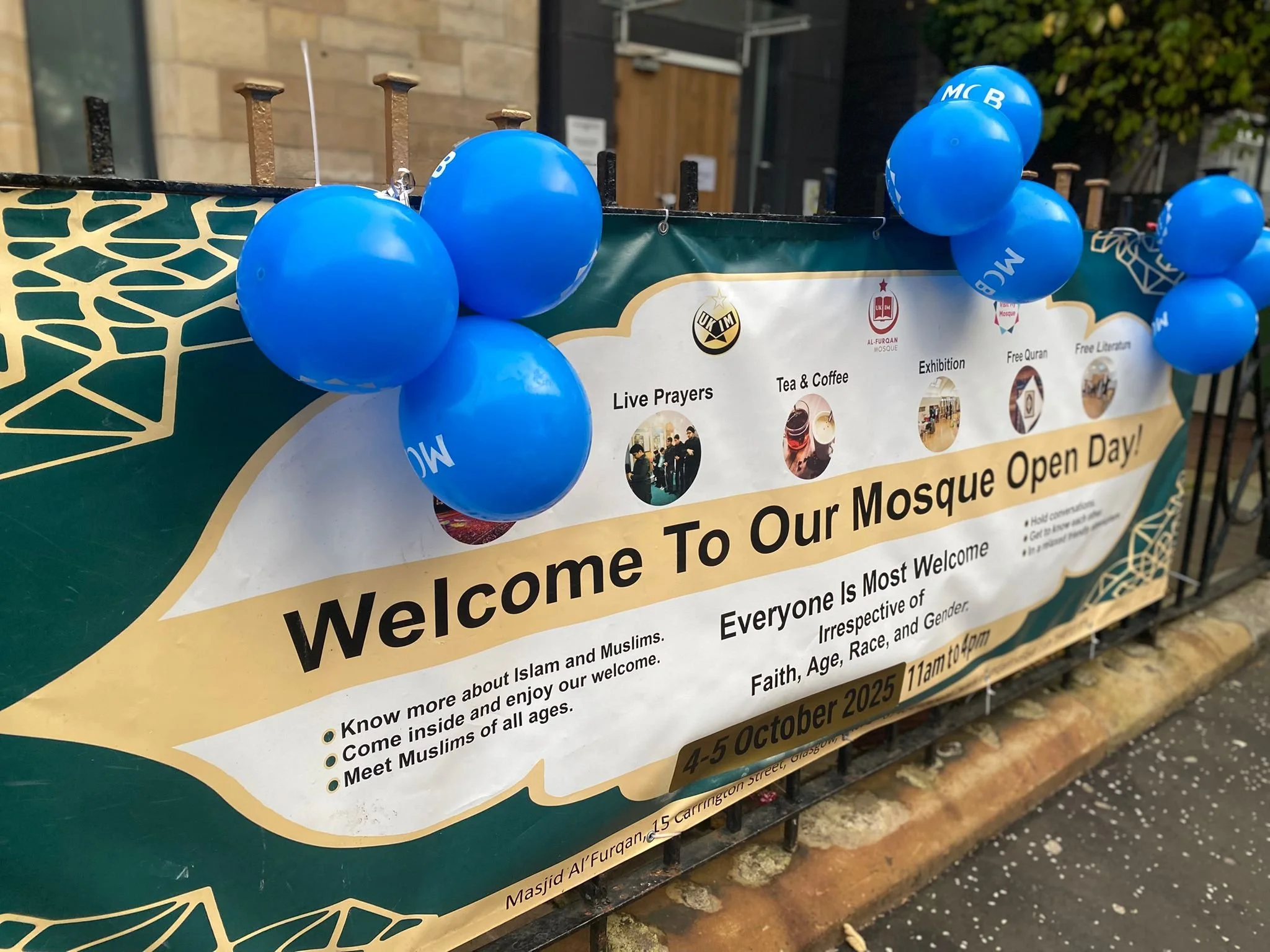OPINION: Confronting a New Wave of Hate in Britain
For many years now we have worked closely with Zara Mohammed, first as the General Secretary of the Muslim Council of Britain and then as an inspiring togetherness trainer. As part of our Steps to Togetherness initiative Zara delivered several highly successful and effective leadership development programmes – Women for Togetherness - aimed at encouraging increased community engagement and women leaders to progress their own local projects designed to bring people and communities from different backgrounds together.
We asked Zara to reflect on CSC’s recent work, which she has done so much to contribute to and enhance - and to share with us her personal perspectives on the challenges we all face to ensure a tolerant and socially harmonious society.
In recent weeks it almost defies belief that the state of our national so-called political dialogue could sink any lower. Yet here we are. A sitting MP, Sarah Pochin, told a TV interviewer: “It drives me mad when I see adverts full of Black people, full of Asian people.” She was forced to apologise after being slammed as racist.
Alongside other notable figures, media outlets and commentators, we see many politicians pushing a coordinated agenda of hate. The tone is uncomfortably familiar. It is the politics of exclusion, the idea of ‘us and them’, and it reawakens a vision of Britain many believed had been left behind.
Sleepwalking to fascism?
Once again there are arguments about who deserves a home and who does not. There have been street clashes and hostile protests. In London, Tommy Robinson called his rally the Unite the Kingdom march. It drew an estimated 100,000 people, but far from uniting the country, it has raised fears of a new era of division. Many condemned it as a ‘scary’ sign of a country ‘sleepwalking to fascism.’
The deep unease surrounding this moment was captured on BBC’s Question Time by broadcaster and journalist Mariella Frostrup. She said the UK’s asylum system is “shambolic” and that the “dehumanising” language used around immigrants is “shocking.” Her words were met with a huge round of applause that spoke volumes about the public mood. She went further: “Imagine if nobody wanted to come here, then we’d really be depressed about Britain as a nation.” It was a reminder that immigration should not be seen as a threat but as a measure of the strength of our society.
At the same time, the symbols around us reveal the tensions of the moment. The sight of national flags across housing estates no longer signals unity or belonging. Too often these symbols are used to mark out difference, to declare who belongs and who does not. This is a bleak picture of a society being pulled apart by suspicion and mistrust.
Reasons for hope
And yet, there are many reasons to remain hopeful.
Across the UK, community organisations continue to stand firm against hate. In the West End of Glasgow, my local mosque opened its doors as part of the national Visit My Mosque campaign. This came only a day after the Peacehaven mosque in Sussex was set alight in an arson attack and the following week after an attack on a synagogue. Despite this climate of hostility, neighbours came in their numbers. Parents brought their children to learn about their classmates, to share food, to meet one another. One woman told me it was the most welcome she had ever felt. Encounters like this are not side stories, they show what solidarity really looks like.
Everywhere I travel, I see community groups feeding the hungry, providing warmth, supporting young people and opening safe spaces. These are not small gestures. They are practical acts of kindness and resilience that strengthen the fabric of society.
People often ask what can be done in the face of hate. The answer lies in continuing to engage, to speak with one another and to support courageous leadership when it emerges. Civil society has a central role in bringing people together, listening to concerns and responding with compassion. The real challenge comes from those who organise to spread hate deliberately and strategically. We need to rise and meet this challenge.
Charities and civil society organisations tell me they are struggling with financial cuts and with the fear of being targeted if they speak out. Yet their voices are vital. If they fall silent, the voices of hate will fill the space.
Investing in people, communities and social solidarity
There is a need to think bigger. National efforts should focus on giving people opportunities and hope. That means jobs, safe spaces, warmth, compassion and support for young people to build their confidence and aspirations. It means helping people out of poverty so that anger and resentment cannot be so easily manipulated.
The future of this country can be so much more promising than the present. The choice is whether we continue to allow hate to dominate the conversation or whether we invest in hope, solidarity and the work of bringing people together.
About Zara
Zara Mohammed is one of the UK’s most influential Muslim women and a leading voice on faith, leadership, and social impact. She made history as the first woman, the youngest person, and the first Scot to serve as Secretary-General of the Muslim Council of Britain. With a strong background in the charitable sector, she now runs a consultancy that empowers diverse voices and supports organisations to strengthen leadership, governance, and inclusion.



